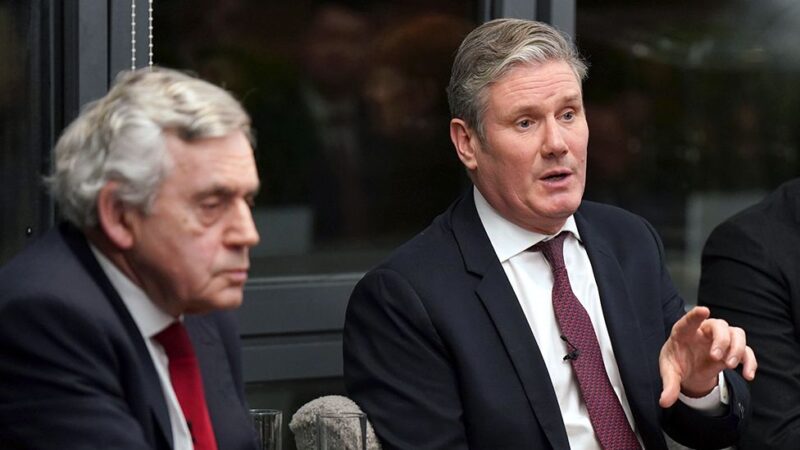Key figures from Labour’s past, including former Prime Minister Gordon Brown, are urging Keir Starmer to champion a new program similar to the acclaimed Sure Start initiative in his election manifesto. This call to action comes on the heels of research underscoring the program’s significant benefits for underprivileged children.
Gordon Brown, who initially launched Sure Start in 1998 during his tenure as Chancellor, is leading the charge. He lamented the scaling back of Sure Start and cuts to children’s benefits after 2010, arguing that such actions have hindered the prospects of countless children. “We desperately need a Sure Start revival,” he stated.
Joining Brown, three ex-Labour education secretaries, including David Blunkett, are advocating for the policy’s rejuvenation, highlighting its potential to profoundly impact young lives going forward.
Sure Start was praised for creating hubs in needy areas that combined early education, healthcare, and family support services, marking a milestone achievement for New Labour. Recent findings by the Institute for Fiscal Studies (IFS) now reveal the program’s long-term academic benefits for low-income children, enhancing their GCSE grades significantly.
The IFS research specifically noted the pronounced positive effects on children who accessed Sure Start centers early on, pointing out improvements in special educational needs support among younger children due to early intervention.
Alan Johnson and Estelle Morris, who also served as education secretaries, echoed the importance of early intervention highlighted by the IFS study. They emphasized the necessity of not discarding effective initiatives for short-term financial savings, citing Sure Start’s proven benefits.
Lord Blunkett reminisced about the rare public approval Sure Start garnered, underlining the importance of policies that yield transformative results over time.
The upcoming general election is expected to see childcare and early years as crucial issues. While the Conservatives focus on expanding free childcare, Labour’s shadow education secretary, Bridget Phillipson, prioritizes childcare reform, stressing the importance of not merely reverting to past policies but building on them for future improvements.
Sure Start’s funding peaked at around £2.5 billion annually but has since been significantly reduced, leading to many center closures. The government’s new family hubs program, with £300m funding, aims to partially address this gap but covers only 75 local authorities.
The IFS’s research builds on previous findings regarding Sure Start’s health benefits, suggesting the program saved the NHS money by reducing hospital visits. Educational benefits were also significant, particularly for disadvantaged and minority-ethnic background children, with access to Sure Start centers correlating with improved GCSE grades.
Experts like Nick Ridpath from the IFS and Neil Leitch from the Early Years Alliance praised the study’s findings, stressing the importance of resources and outreach in achieving substantial benefits for disadvantaged children.
Labour has responded positively to the research, promising to focus on reducing child poverty and expanding opportunities. The Department for Education highlighted its investment in family hubs as a continuation of early years support, albeit with some differences from the Sure Start model.

